Last Chance to Catch NYC's Holiday Notalgia Train
We met the voices of the NYC subway on our nostalgia ride this weekend!


If you’re looking for a great day trip out of New York City in any season, New Rochelle has a lot to offer (and the city is just thirty minutes from Grand Central Terminal!). From the New Rochelle train station (which services Metro North and Amtrak), you can walk through all of downtown New Rochelle, explore 330 years of history and have a meal from one of the many restaurants serving international cuisine, without ever having to take a car or mass-transit.
In this article, we’re providing a Google map you can add to your phone and a step-by-step guide on what to see all within walking distance of getting off the train. Fun fact: On this walking tour, you’ll see buildings designed by the architects who created the Lincoln and Jefferson memorials in Washington D.C. and Trinity Church in Manhattan. “Every architectural style is represented in this community,” says Barbara Davis, the city historian, as she walked us around the neighborhood pointing out the highlights. You can also get to New Rochelle’s downtown with a single swipe of your MTA Metrocard by using a free transfer from the subway to the Westchester Bee Line 60 bus at Fordham Road in the Bronx.

A great spot to get situated within the history and culture of New Rochelle is to first visit the Walk of Fame, located in Ruby Dee Park, a public park right in front of the New Rochelle Public Library. Here, you can find plaques of New Rochelle’s notable residents, including Lou Gehrig, Jay Leno, Norman Rockwell, film director Elia Kazan, Don Hewitt of “60 Minutes,” novelist E.L. Doctorow, Don McLean (singer-songwriter, known for “American Pie”), composer Alan Menken, Walter Lanz (creator of Woody Woodpecker), civil rights activist Ruby Dee and her husband Ossie Davis, for whom the theater inside the New Rochelle Public Library is named after.
Next, keep walking down Huguenot Street until you reach Division Street.

New Rochelle was founded in 1688 by French Huguenots. Many of the early settlers came from La Rochelle, a seaside port town in Western France. At the center of the settlement of New Rochelle was the church, which originally encompassed one hundred acres, around which the residents built their homes. In 1709, the congregation decided to become part of the Church of England, taking the name Trinity, and after the American Revolution the church became Trinity Episcopal Church. With this history, it’s no coincidence that Richard Upjohn, the architect of Trinity Church on Wall Street in Manhattan, designed the Trinity-St. Paul’s Episcopal Church that stands today at 311 Huguenot Street.
The church is also home to the Huguenot burial ground, which was relocated here after the I-95 expressway cut through the original cemetery. Look out for the oldest tombstone in the cemetery, dating to 1750 which is inscribed in French.

Grab coffee, tea and pastries (or savory food too) at R Café and Tea Boutique at 301 Huguenot Street, a cozy, art-filled cafe, and then continue on your way. If you want a more formal meal, check out Modern just next door for Italian fare in a stunning former car dealership. Next, walk down Division Street where you’ll pass several more culinary options Posto 22, (Italian), Coramandel Cuisine of India, The Wooden Spoon (American comfort food), Juicy Chicken (Peruvian) and Hurley’s Steakhouse & Pub, plus soul food and Caribbean at Alvin & Friends (around the corner on Memorial Highway). Make a right when you get to Main Street.
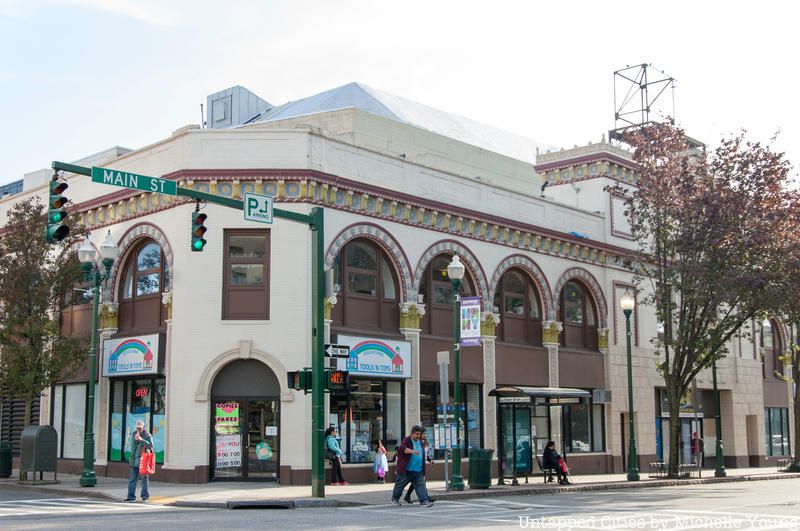
On Main Street, just off Centre Avenue are two former movie palaces that face each other. At 587 Main Street, a historic facade of the original Loews Theatre in New Rochelle still stands, with a new 28-story development by RXR Realty going up behind it. Across the street is the former RKO Quad Theatre (originally the Proctor’s Theater before that). Today, it is used as a school along with retail and other commercial, but you can still see the blue, green, and beige tiling on the facade that runs along the arched windows, column, and friezes.
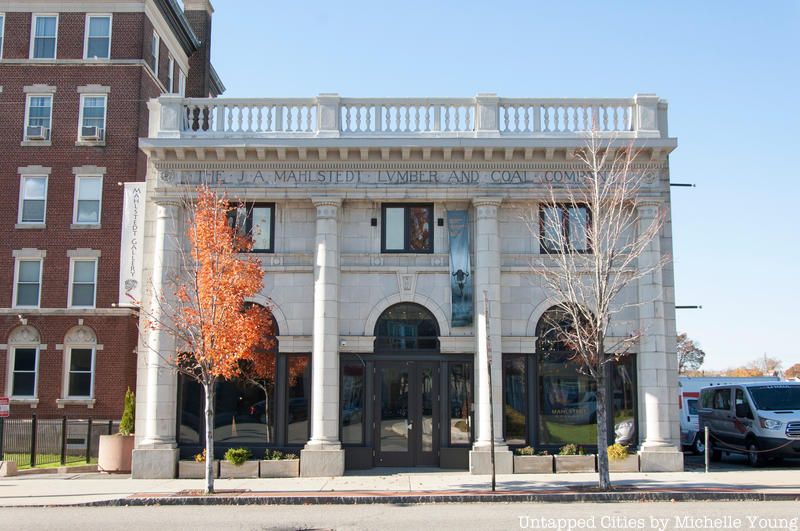
Keep walking down Main Street to where it intersects with Huguenot Street – there are three sites here with notable Neoclassical architecture. At 415 Huguenot Street, you’ll see a striking limestone building. At 662 Main Street at the corner of Pintard Avenue, you’ll find the original New Rochelle Public Library, an Andrew Carnegie library that is now a publishing house. This was the original offices of the J. A. Mahltstedt Lumber and Coal Company, now an art gallery.
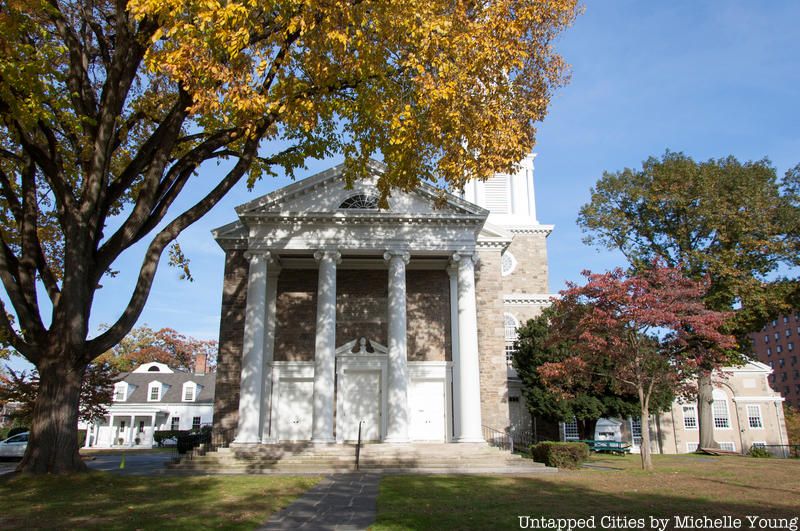
And finally, take a walk down Pintard Avenue to see the First Presbyterian Church of New Rochelle at 50 Pintard Avenue, first established as The Reformed Church of France in 1688. The original church was destroyed by fire and the current church was built in 1929 and designed by John Russell Pope, who created the Jefferson Memorial in Washington D.C. On the same property, just next to the church is the Pintard House, a home built by the Allaire family around 1700 and considered one of New Rochelle’s oldest houses.
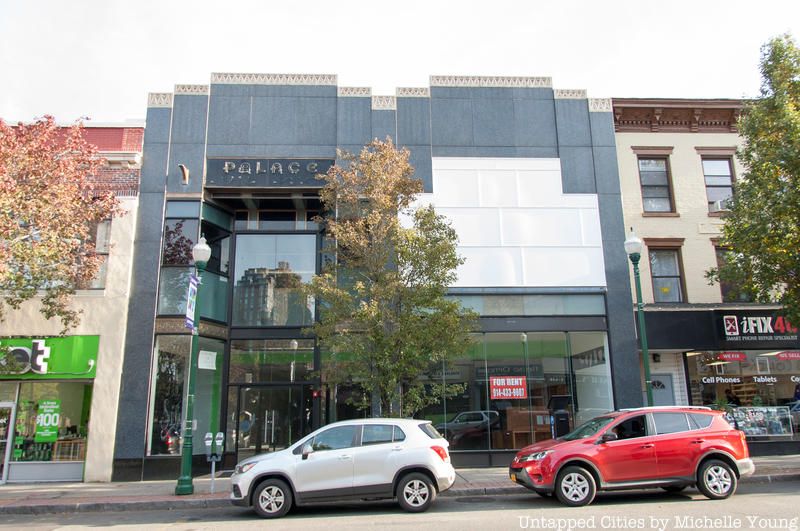
Now, head back the way you came, walking north east up Main Street. There are two buildings worthy of note along this first stretch. The New Rochelle Trust Company building at 542 Main Street was originally built as the Bank of New Rochelle with lovely brownstone details, and the Palace building at 518 Main Street is an Art Deco building of blue pearl granite and glass that was built as a shoe store by Melvin L. Kahn.
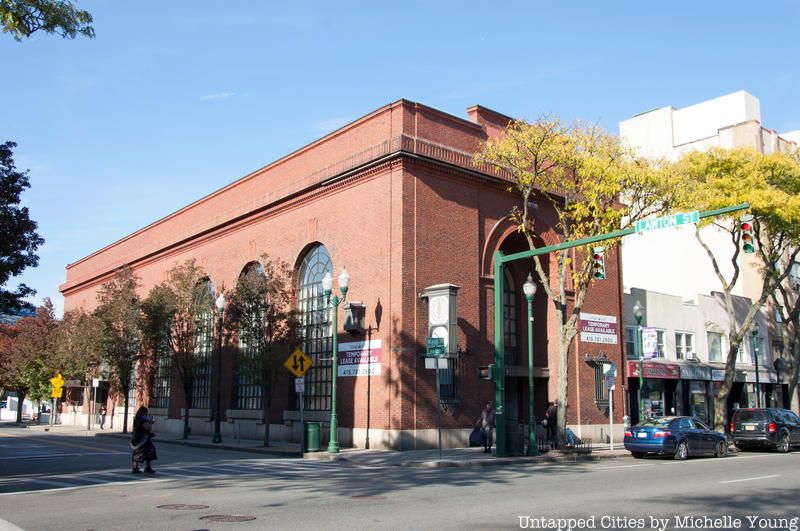
At 491 Main Street, on the corner of Lawton Street, you’ll find former National City Bank, designed by Henry Bacon who created the Lincoln Memorial in Washington D.C. The bank was established at the same time as the incorporation of New Rochelle as a city in 1889 and construction began on this main branch began in 1906. The brick building has large arched windows and a main entranceway, with a traditional banking hall inside.
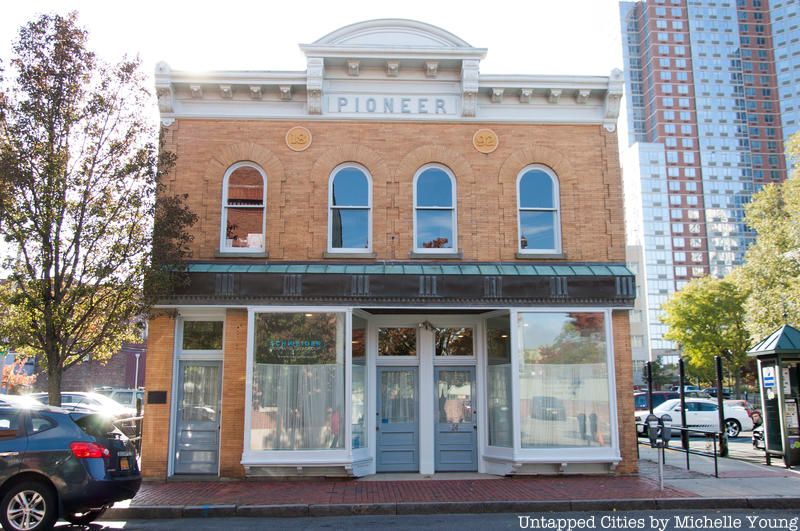
From here, take a quick walk north down Lawton Street to peek at the Pioneer Building, an adorable holdout building on this block. The building originally housed The Pioneer, a weekly newspaper. And if you didn’t have your fill of food yet, Patria’s tapas and wine is a sophisticated spot for Peruvian and Spanish food located at 4 Lawton Street. Also check out Gnarly Vine at 501 Main Street for a wine bar and small plates.
Next, head back to Main Street and make a left.
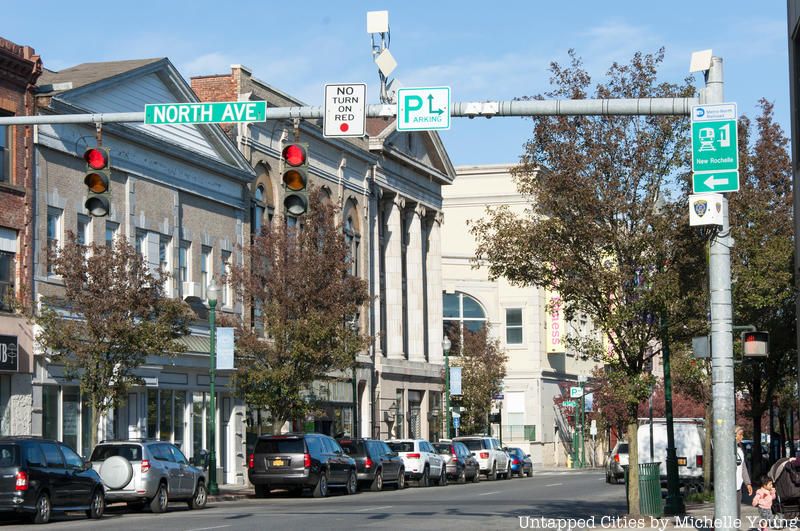
On the corner of North Avenue is the Atrium Building, another Art Deco find. Then walk one more block to see the former Masonic Temple and Lodge, completed in 1901, which was shared with the New Rochelle Library until the library constructed its own building, which we saw at Stop 6.
Head back to North Avenue, and walk one block north to the intersection of Huguenot Street. At this intersection, you’ll find four points of interest:
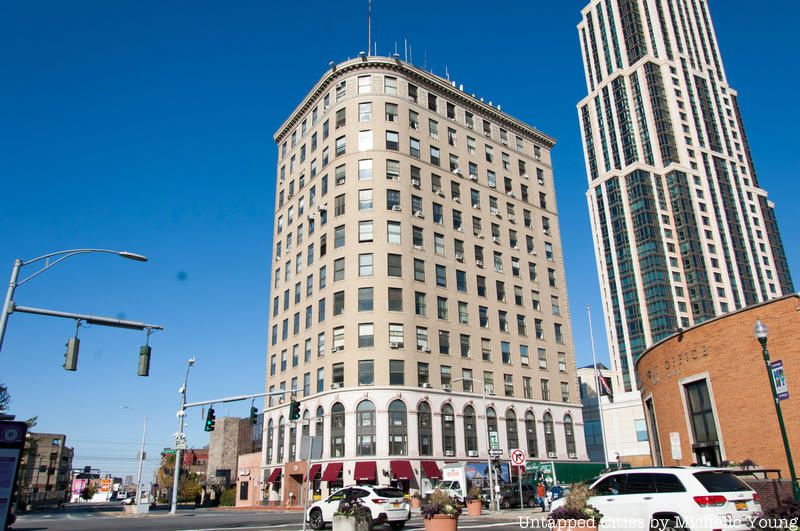
First, the K Building at 271 North Avenue. The 13-story building, the tallest at the intersection, was the original headquarters of Terrytoons, a rival company to Disney in animation founded in 1934 by Paul Terry. Notable characters like Mighty Mouse were created by Terrytoons.

Built in the Art Moderne style, the New Rochelle Post Office just across the street from the K Building features two large WPA-era murals by David Hutchison, a New York City-based artist, that tell the history of New Rochelle. One mural depicts the arrival of the Huguenots and the other shows the sale of the New Rochelle land tract from John Pell of Pelham Manor to the Huguenots. The post office is listed on the National Register of Historic Places.
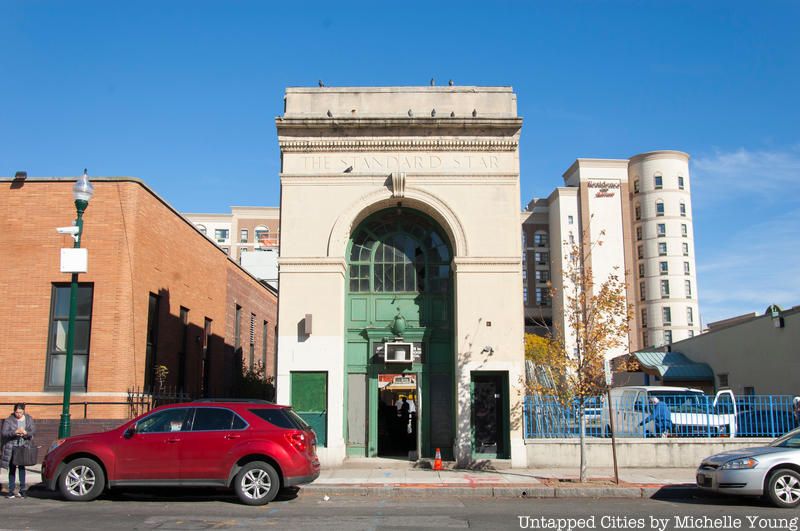
Just next door to the post office at 251 North Avenue is a narrow Italian Renaissance revival style building that was once home to the headquarters of the New Rochelle daily newspaper, the Standard Star. Construction is underway to turn it into a 114-apartment complex with retail space on the ground floor.

The “Stacked!” NRNY sculptures are an initiative of the City of New Rochelle’s Municipal Arts Commission and Department of Development, which launched this past summer. Each NRNY sculpture was painted by different artists, selected through an open call around the country. The first two sculptures to be installed are located on the southeast corner of the intersection and were designed by Charles Fazzino and his daughter Heather Fazzino.
This concludes your downtown New Rochelle tour! After this, at mid-block, you’ll find Bridge Street again, which you can take to get back to the train station overpass.
If you have access to a car, also check out our guide to the 15 Must-Visit Places in New Rochelle which include parks and other points of interest along the 9.3 mile waterfront and more stunning historical locations.
Subscribe to our newsletter